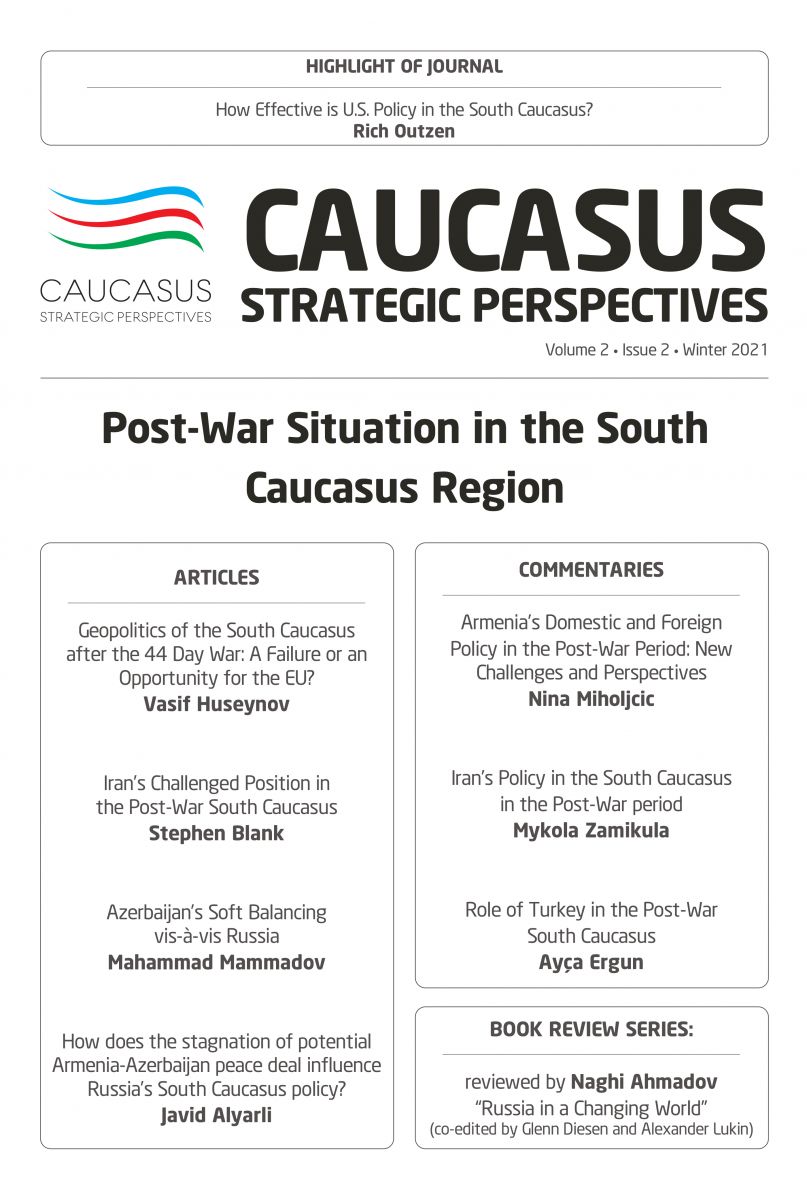Iran’s Policy in the South Caucasus in the Post-War period
The South Caucasus was not a priority direction for the foreign policy of Iran over recent decades, as the Middle East remained its main space of action. However, the new status quo in the South Caucasus that emerged after the Second Karabakh War (also known as the 44 Day War) caused concerns in Iran and led it to boost its activities in this region. The purpose of this paper is to understand Iran’s interests in the South Caucasus; approaches to specific issues (e.g., the prospects for opening new transport routes); and relations with Azerbaijan, Armenia, and Georgia. The paper concludes that Iran’s approach to the South Caucasus is based on traditional concepts of the country’s national foreign policy that are determined by a strong historical heritage and fear of foreign intervention. Iran negatively perceives the growing influence of Turkey in the South Caucasus as well as the Azerbaijan–Israel partnership. This has led to diplomatic tension with Azerbaijan and strengthening of existing cooperation with Armenia
Latest news
- 12/27/2024 Call for Submissions-Caucasus Strategic Perspectives, Volume 6, Issue 1, Summer 2025 680 views
Popular articles
- 07/18/2022 The Russia–Ukraine War: Perspective of Azerbaijan 4357 views
- 10/14/2020 The Non-Aligned Movement: In Pursuit of Validity and Relevance in the Contemporary Global Order 3326 views
- 10/14/2020 Vicious Circle of the South Caucasus: Intra-Regional Conflicts and Geopolitical Heterogeneity 3299 views
- 10/14/2020 Relevance of Non-Alignment for Azerbaijan’s Foreign and Security Policy 3030 views





